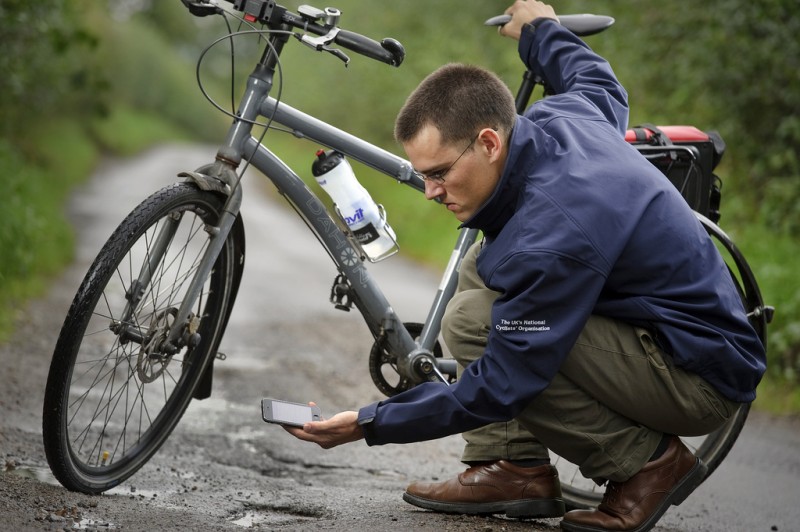As motorists, we all come across things in the road that obstruct, hinder or just get in the way of our journeys progress. As such, keeping an eye on every single sign, curb and street furnishing is a full time occupation when behind the wheel. So, when you come across a pot-hole that is often unavoidable or hidden by water, it’s just another thing that we all put up with but hate. More than that, they can be dangerous to drivers and cyclists in particular, as well as damaging to suspension, wheels and tyres.
As many owners with alloy wheels in particular will know from bitter experience, pot-holes can cause a nasty dent and pricey repair or replacement. Often, these expenses can be claimed against local councils who may not have been quick enough in implementing repairs to pot-holes after they’d been first noticed and reported.
The government as a whole seems to agree that awareness of pot-holes is a priority as it will ultimately help save them huge damage payout costs every year from councils across the country. The latest expenditure to tackle the increasing problem of pot-holes is to invest £30,000 to back the development of an innovative smartphone application to report potholes.
The Department for Transport (DfT) pledged the cash to enable CTC, the National Cycling Charity, to revamp its Fill that hole website and develop a new app compatible with smartphones running Android software – the first iteration of the app only worked with Apple iOS devices.
Over 9 million iPhone users can download the website’s current app to report potholed roads to their councils; the new app could boost that figure to over 26 million and is expected to be ready in February, at the start of ‘pothole season’ when the winter damage to roads is at its greatest.
Roads Minister Robert Goodwill said:
2The government is serious about tackling potholes. At best they are an irritation but at worst they can damage vehicles and pose a serious danger to cyclists. That is why we want people to tell councils where to find them so they can fill them in. This app means more people are going to be able to report potholes more easily.
Filling potholes in quickly is only one half of the story. Research has also shown a long-term approach to road maintenance, rather than patch and mend, can save councils and taxpayers money and potentially save lives thanks to better road conditions.”
CTC originally developed its app for cyclists, who can receive life-changing injuries from accidents caused by potholes, but it is now used by all types of road user, from delivery drivers to motorists concerned about potential damage to their vehicle.
The app sends local authorities up-to-the-minute information about potholes which the council may not otherwise know about, allowing them to identify trouble spots needing action fast. In the past year around £23.8 million was paid in compensation by local authorities across England due to the poor condition of their roads according to the Asphalt Industry Alliance.
The support for the app comes as more local authorities adopt new government guidelines which urge councils to plan extensive maintenance well in advance, rather than years of costly ‘patching’ as potholes appear – saving the taxpayer money.
The government has provided over £3 billion to authorities in England (excluding London) between 2011/2012 to 2015/2016, plus an additional £200 million in 2011 following the severe winter.
In June, the department announced a further £5.8 billion for local highways maintenance from 2015/2016 to 2020/2021. This equates to around £976 million per year, a funding increase of £163 million a year.
CTC Chief Executive Gordon Seabright said:
“CTC has been working to ensure roads are safe for cycling since our foundation in 1878. We are delighted to have the government’s support for our ‘Fill that hole’ website and app, which are already highly effective ways for road users to get potholes filled.
This partnership with the Department for Transport will enable us to provide this free service to far more cyclists and other road users. It’s also a great example of CTC and the government working together to get Britain cycling.”
Councillor Dave Hibbert, the Oldham Council Cabinet member for Environment and Housing, said:
“Over the last four years Oldham Council has invested £10 million into repairing highways across the borough and put in an additional £2 million, which included purchasing new machines, to make repairs quicker, longer-lasting and less expensive than ever before.
We always try to provide value for money for our residents and this smartphone application, coupled with our own app that we are launching very soon, will help us provide a more cost effective and high-quality outcome.”
Source; Department For Transport Press Release & CTC Photos.




